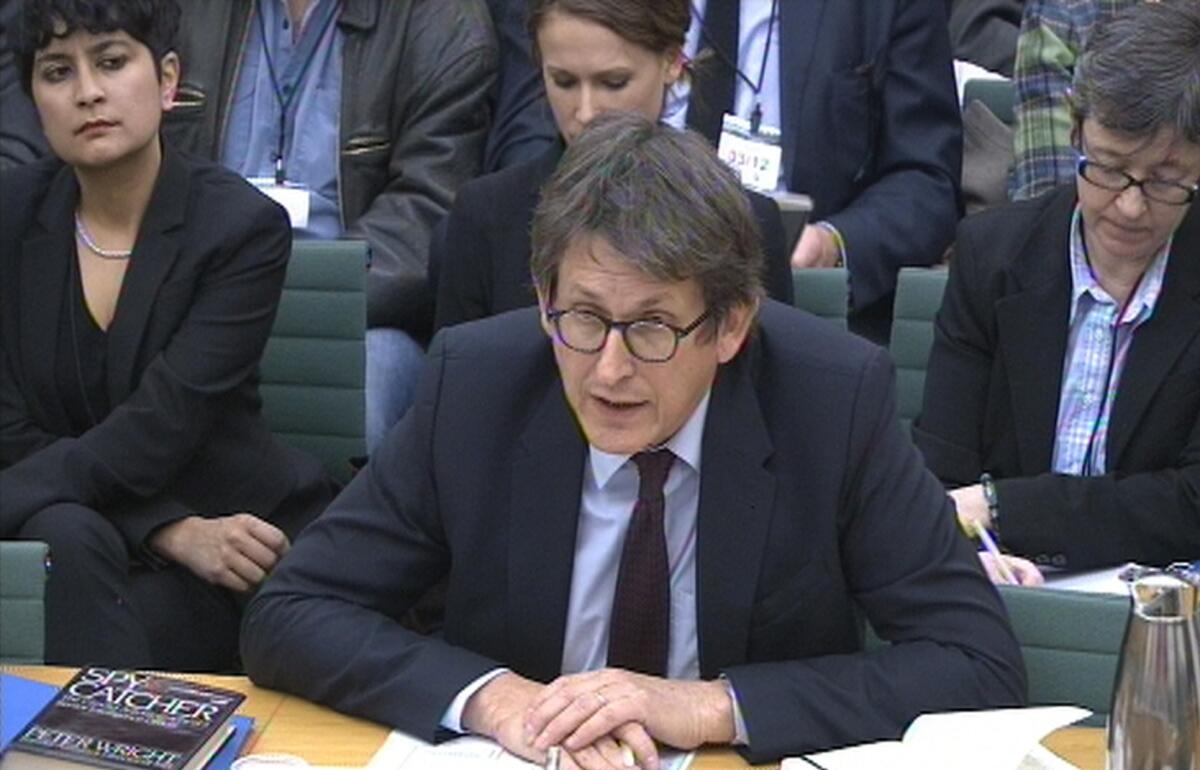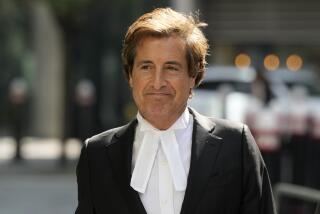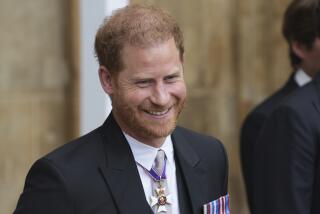Editor of Britainâs Guardian defends publication of NSA files

LONDON -- The editor of the Guardian defended his decision to publish leaked files from the U.S. National Security Agency and told a committee of Parliament on Tuesday that so far the British newspaper has revealed only 1% of the material provided by former security contractor Edward Snowden.
Editor Alan Rusbridger told the Home Affairs Committee that revealing details from those U.S. files was in the interests of democracy and a free press and there was no evidence of any damage done to Britain or its people.
The Guardianâs coverage based on Snowdenâs leaks, matched by stories in the New York Times and Washington Post, has revealed surveillance practices that surprised some U.S. allies. Mobile phones belonging to German Chancellor Angela Merkel, French President Francois Hollande and Brazilian President Dilma Rousseff were hacked, delegations to a meeting of the Group of 20 nations in London were bugged and U.S. security services were shown to be able to monitor ordinary cellphone conversations across Europe.
The decision to publish selected, redacted versions of the secret files was one that any newspaper editor would have taken, Rusbridger told lawmakers.
In a similar parliamentary interrogation last month, John Sawers, head of MI6, Britiainâs foreign security service, said publication of the Snowden revelations had âput our operations at risk. Itâs clear our adversaries are rubbing their hands with glee, Al Qaeda is lapping it up.â
Rusbridger denied damaging the countryâs security interests, saying no names or identities of agents or security service employees had been revealed. He insisted that publication of the files had shed light on questionable tactics of intelligence gathering both in the U.S. and Britain and prompted a debate about security services.
âI canât think of a story in recent times that has ricocheted around the world like this has and which has been more broadly debated in parliaments, in courts and amongst NGOs,â or nongovernmental organizations, he told the committee in an hourlong session.
âThe roll call of people who have said there needs to be a debate about this includes three presidents of the United States, two vice presidents, generals, the security chiefs in the U.S. ⌠all saying this is a debate that in retrospect we had to have.â
Before the hearing, a personal letter of support to Rusbridger from Watergate era journalist Carl Bernstein appeared on the Guardian website. The paper also received backing from the Virginia-based Reporters Committee for Freedom of the Press in an open letter to the committee signed by major U.S. news and journalism organizations.
The letter urged that the lawmakers use the session to âreaffirm Britainâs commitment to a vigorous, free and independent pressâ and to acknowledge that the Snowden revelations âfiltered through responsible journalists, have served the public interest.â
ALSO:
As Nigerian militants flex their muscles, officials downplay damage
Ukrainian opposition fails to pass no-confidence vote in parliament
North Koreaâs No. 2 official may have been ousted, spy agency says
Stobart is a news assistant in The Timesâ London bureau.
More to Read
Sign up for Essential California
The most important California stories and recommendations in your inbox every morning.
You may occasionally receive promotional content from the Los Angeles Times.








